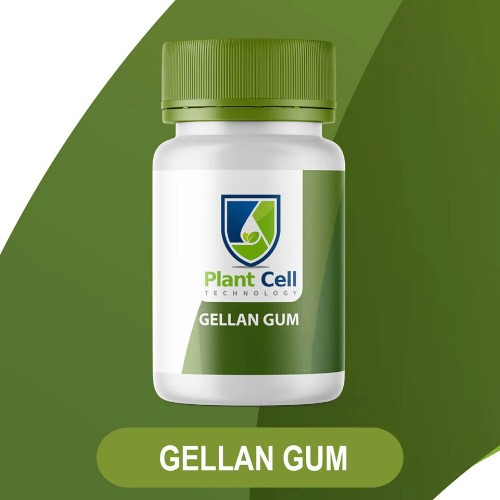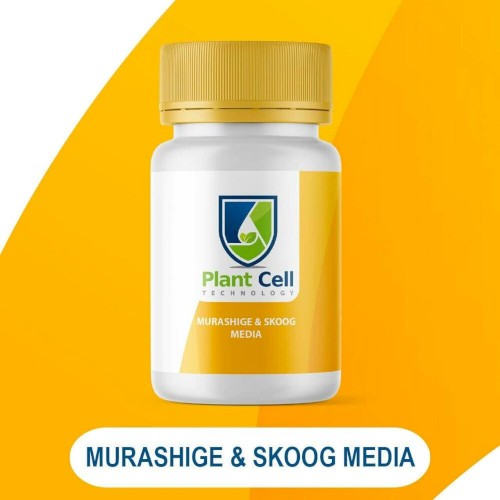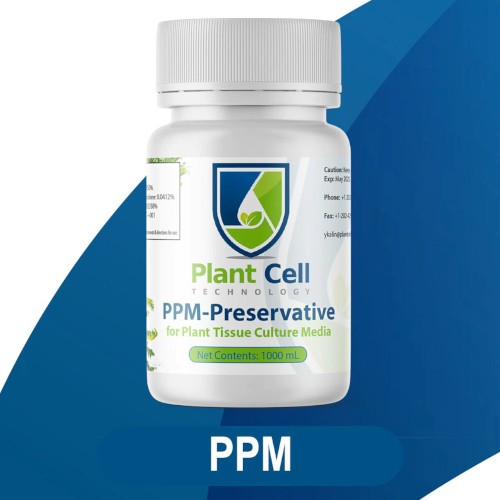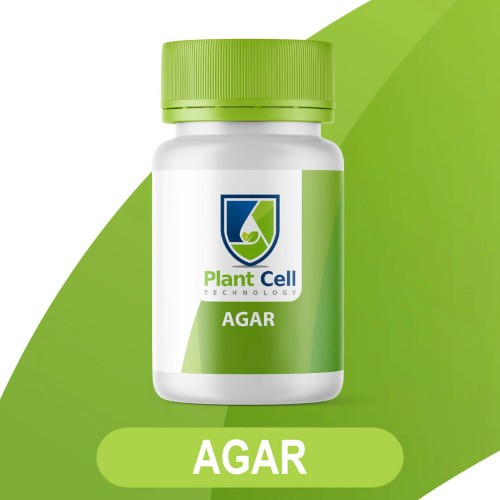
Gellan Gum, Plant Cell Technology
Login to see pricesBrand:
Plant Cell Technology
Gellan gum also known as Phytagel, Gelzan, Gelrite, or Applied gel is a water soluble anionic polysaccharide produced by fermentation of a carbohydrate by pseudomonas Elodea, purified, dried, and powdered.
Gellan gum is ideal for preparation of nutrient media for in plant tissue culture work and is a substitute for agar.Gels produced by gellan gum are clearer in comparison to agar however the gel is more rigid and brittle than agar gel. Gellan gum requires roughly half the amount of agar that is needed. Gellan gum melts at 80°C– 100°C and gels between 10°C-50°C.Gellan gum also known as Phytagel, Gelzan, Gelrite, or Applied gel is a water soluble anionic polysaccharide produced by fermentation of a carbohydrate by pseudomonas Elodea, purified, dried, and powdered.
Gellan gum is ideal for preparation of nutrient media for in plant tissue culture work and is a substitute for agar.Gels produced by gellan gum are clearer in comparison to agar however the gel is more rigid and brittle than agar gel. Gellan gum requires roughly half the amount of agar that is needed. Gellan gum melts at 80°C– 100°C and gels between 10°C-50°C.
Gel Strength: >900 GM/CM2
Application:
Gellan Gum is used as microbial solid culturing media. The substance is often used in doses ranging between 0.2% to 0.4% (w/v) to solidify plant tissue culture media. PPM can be mixed in when creating Gellan Gum media

Murashige Skoog Medium, Plant Cell Technology
Login to see pricesBrand:
Plant Cell Technology
Supports or facilitate plant growth and/or shoot proliferation in two or more plant tissue cultures (both in monocotyledons and dicotyledons).
| INGREDIENTS | QUANTITY (MG/LTR) |
| POTASSIUM PHOSPHATE MONOBASIC | 170 |
| POTASSIUM NITRATE | 1900 |
| MAGNESIUM SULPHATE | 180.69 |
| AMMONIUM NITRATE | 1650 |
| COBALT CHLORIDE 6H2O | 0.025 |
| COPPER SULPHATE 5H2O | 0.025 |
| BORIC ACID | 6.2 |
| EDTA DISODIUM SALT 2H2O | 37.3 |
| POTASSIUM IODIDE | 0.83 |
| MANGANESE SULFATE H2O | 16.9 |
| FERROUS SULPHATE 7H2O | 27.8 |
| SODIUM MOLYBDATE 2H2O | 0.25 |
| ZINC SULPHATE 7H2O | 8.6 |
| CALCIUM CHLORIDE 2H2O | 440 |
| GLYCINE | 2 |
| MYO-INOSITOL | 100 |
| PYRIDOXINE HCI | 0.5 |
| THIAMINE HCI | 0.1 |
| NICOTINIC ACID | 0.5 |
**FORMULA WT. 4.54 GMS/LTR**
| Appearance | White to light tan with a homogenous mixture of free-flowing powder |
| Solubility | Colourless to slightly yellow solution, clear, complete |
| pH (at 25*C) | 4.8 0.2 |
Instructions for Use:
Dissolve 4.54gms of dehydrated medium in 600ml of distilled or deionized water at room temperature (15-30*C). Rinse media vial with small quantity of distilled water to remove traces of power. Add the desired heat stable supplements prior to autoclaving. Continue stirring until the powder has dissolved. Some times media does not dissolve completely unless the pH is reduced. For these, lower the pH to about 3.0 to facilitate dissolution of media. The pH of medium is adjusted by using 1N HCL/ 1N NaOH/ 1NKOH. Make up the final volume to 1000ml with distilled water. Mix Gently, heat and rotate between intervals until the solution becomes clear. Do not boil, reheat and allow to cool below 50*C during dispensing. Dispense the medium into suitable containers, plug or cap, then autoclave at 15pso (121*C) for 15 minutes, using a slow exhaust cycle. Higher temperatures and/or longer times are not recommended. Cool the autoclaved culture vessels containing medium to 45-50*C and aseptically add desired sterile heat-labile substrate.
Note: Media should be prepared according to formula mentioned on the label, however, it is recommended to use an entire container at once. Heat-liable substrates should be added, after autoclaving.

Plant Preservative Mixture (PPM), Plant Cell Technology
Login to see pricesBrand:
Plant Cell Technology
Plant Preservative Mixture (PPM), is a broad-spectrum biocide/ for plant tissue culture. PPM™ is the ultimate solution to the never-ending struggle against microbial airborne, waterborne and endogenous contamination.
PPM™ is a heat-stable preservative/biocide which can be used to effectively prevent or reduces microbial contamination in plant tissue culture.
At optimum doses, PPM™, which stands for Plant Preservative Mixture™, is an extremely effective Preservative/Biocide, yet does not impair in vitro seed germination, callus proliferation and callus regeneration.
PPM™ prevents the germination of both bacteria and fungi spores. It is heat stable and therefore can be autoclaved with the media.
PPM™ can be, and should be used as a standard ingredient in plant tissue culture media, and is also substantially less expensive than commonly used antibiotics.
While PPM™ was principally designed to inhibit airborne contamination, waterborne contamination and contamination introduced from human contact, it can also — in many cases — be used to reduce endogenous contamination.
Despite the most stringent use of sterile techniques, the contamination of plant cell and plant tissue cultures remains a persistent problem that can result in losses ranging from small number of cultures to the loss of whole batches.

Supreme TC Grade Agar, Plant Cell Technology
Login to see pricesBrand:
Plant Cell Technology
A polysaccharide complex obtained through bleaching and hot water extraction of agarocytes from the red alga Rhodophyceae. Typical usage rate of 6 – 12 g/L medium. Supreme agar offers greater clarity of plant culture media.
Gel Strength: 1050 GM/CM2
Application:
Agar is used as microbial solid culturing media. The substance is often used in doses ranging between 0.5 to 1.0% (w/v) to solidify plant tissue culture media. Agar is an essential ingredient used for in vitro root development.



